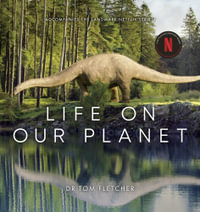This open access book looks at the archaeology of Amazonia. In the popular imagination, the Amazon rainforest is a virgin wilderness nearly empty of people: a deceitful Garden of Eden whose infertile soils and scarce game prevented the development of intensive agriculture and the emergence of complex societies. However, a spate of recent discoveries and technological breakthroughs have allowed us to peer through the forest canopy to the earth below, creating an entirely new picture of the untold human history of the region which overturns these long-held assumptions.
Reaching back to the earliest colonization of the Amazon basin during the last Ice Age, this book demonstrates how its current diversity of landscapes, ecology and inhabitants is deeply rooted in prehistory and an ongoing legacy of human occupation and alteration of the rainforest environment. Among the major achievements of ancient Amazonian peoples were the domestication of globally important crops, such as manioc, yams and sweet potato, and the engineering of the landscape for sustainable food production, which led to distinctively complex, early urban polities that can rival any civilization of antiquity.
Today, Amazonia is facing a crisis and lessons from its traditional peoples are more urgent than ever. The extraordinary archaeological discoveries of recent years are not just spectacle, but represent the history of a way of life that is rapidly disappearing, and on which the Amazonian rainforest as a major reservoir of biodiversity, and in turn all humanity, depends. By connecting the past to the present and bringing to light the critical role of today's indigenous and traditional lands in providing a barrier to deforestation under current climate and political pressures, The Archaeology of Amazonia lays out the way ahead to a more socially responsible future of rainforest management which draws on the lessons of the past.
The ebook editions of this book are available open access under a CC BY-NC-ND 4.0 licence on bloomsburycollections.com. Open access was funded by the European Research Council.
























